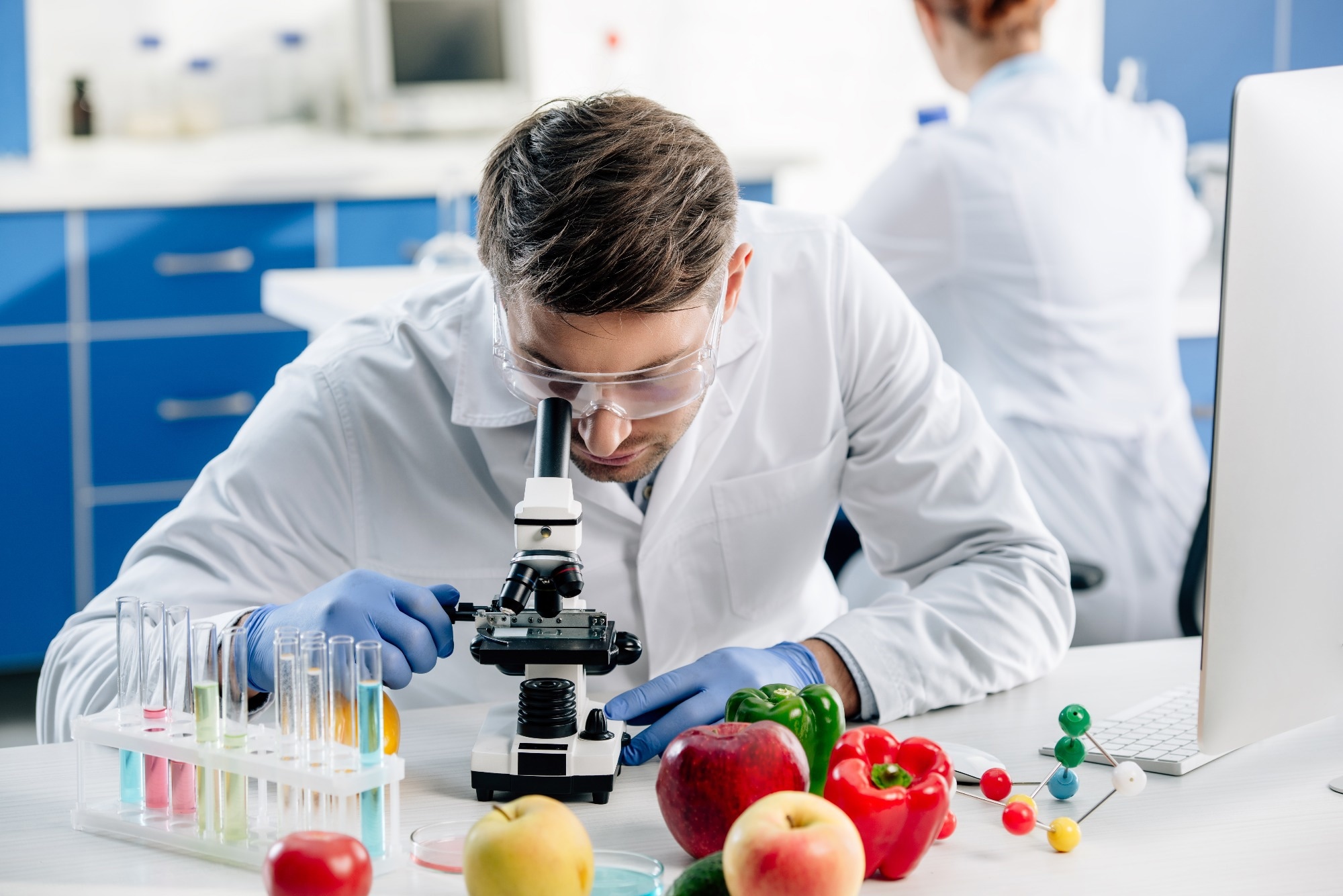In a paper published in the journal Engineering Applications of Artificial Intelligence, researchers introduced a novel data-driven approach called SUCOLA to address challenges in food safety, which included the analysis of both physical and chemical testing (PCT) data. This approach tackled issues related to sample correlation, label imbalance, and labeling dependency, achieving remarkable performance improvements compared to existing methods when applying Self-adaptive structure refinement Unsupervised COntrastive LeArning (SUCOLA) to real-world datasets and benchmark datasets. This made significant strides in early warning research for PCT data in food safety.
 Study: Revolutionizing Food Safety with SUCOLA: A Data-Driven Approach. Image credit: LightField Studios/Shutterstock
Study: Revolutionizing Food Safety with SUCOLA: A Data-Driven Approach. Image credit: LightField Studios/Shutterstock
Background
Food is a pivotal aspect of life, impacting health, nutrition, and cultural identity. Recent high-profile food safety incidents, such as the sauerkraut exposé, propylene glycol in milk, and the Salmonella outbreak in Belgian chocolate, highlight global food safety concerns. The potential health risks tied to what people eat make precise assessments and early warnings about food safety paramount. Research in risk assessment offers valuable insights into proactively managing food safety, particularly leveraging data from food PCT reports.
Prior research has laid the groundwork for understanding food safety challenges that included risk assessment and leveraging food testing data. This forms the basis for the current research, which aims to advance the field by developing a data-driven approach. Using PCT data, this approach can assess and warn about food quality and safety risks.
Proposed Method
This paper introduces a novel approach SUCOLA, as a response to critical challenges in food safety risk assessment. SUCOLA is designed to offer early warnings regarding food safety risks by leveraging a real dataset of sterilized milk PCT reports comprising 2158 cases, each containing six detecting indicators.
To address these challenges, SUCOLA adopts a multi-faceted strategy. Firstly, it seeks to identify and capture potential sample associations within a network to overcome the challenge of sample correlation. It modifies the initial fine-grained graph's topology through graph message aggregation and structure learning.
Secondly, SUCOLA employs a contrastive learning approach to address the label imbalance problem by constructing associations between target nodes and meticulously designed local subgraphs to expose substandard samples. It differentiates consistency among instance pairs and enables the evaluation of risk status for target nodes.
Thirdly, the self-supervised contrastive learning approach refines the structure and aids in risk detection by overcoming labeling dependency. The combined efforts of these technical designs empower SUCOLA to effectively capture association networks within the sample space and provide valuable early warnings for food safety risks.
Experimental Results
The Research Questions (RQs) serve as the guiding pillars of this study, allowing researchers to delve into the intricacies of the SUCOLA framework for food safety risk early warning. The first question, RQ1, centers on evaluating the efficacy of SUCOLA in providing risk warnings when confronted with food safety-detecting data in an unsupervised setting. In this context, SUCOLA operates without labeled data to guide its learning to necessitate the autonomous detection of potential food safety risks. Researchers conducted experiments where the framework analyzed unlabeled data and quantified its ability to autonomously identify and warn about possible safety issues in food products. Performance metrics such as accuracy, precision, recall, and AUC were used to measure the effectiveness of the framework in this unsupervised scenario.
Moving on to RQ2, this question probes the impact of individual components within the SUCOLA framework on its overall performance. These components encompass specific algorithms, techniques, or modules integrated into SUCOLA to accomplish its objectives. Experiments were likely conducted where researchers systematically modified or disabled certain components to understand their respective contributions to the performance of SUCOLA. This analysis aids in pinpointing critical aspects of the framework and provides insights for potential enhancements or optimizations.
In tandem, RQ3 explores the influence of key hyperparameters on SUCOLA's performance. Hyperparameters are settings predetermined before model training and include variables such as learning rates, batch sizes, and the structure of the network architecture. Experiments involved varying these hyperparameter values while keeping other factors constant to observe how these adjustments affected the framework's performance metrics. The goal is to identify the optimal hyperparameter configurations that lead to peak performance in SUCOLA for food safety risk assessment. These research questions collectively form the foundation for a thorough evaluation of SUCOLA's capabilities and offer valuable insights for its refinement and application in food safety risk analysis.
Contribution of this Paper
The highlights of this research include the following:
- Introduction of a data-driven self-supervised paradigm for early warning of food PCT datasets by expanding the applicability beyond traditional supervised models.
- The development of SUCOLA, a self-supervised model, that leverages collaborative learning to optimize association networks within the sample space. This model effectively delivers risk warnings when faced with label imbalance.
- Comprehensive experiments conducted on a real-world food PCT dataset and benchmark datasets showcase SUCOLA's effectiveness and generalizability.
- Empirical results demonstrate its strong performance across diverse datasets by positioning it as a valuable tool for early food safety risk warnings.
Conclusion
To summarize, SUCOLA is an innovative early warning framework designed to identify potential food safety risks in products. It distinguishes between qualified and unqualified products based on abnormal risk scores to leverage comparative learning and adaptive structure optimization. This approach investigates sample association networks to enhance the accuracy of risk detection by drawing inspiration from the field of food science. Within SUCOLA, structure-guided and structure-fusion mechanisms are introduced to expedite this process and facilitate more effective early warnings for food safety concerns.